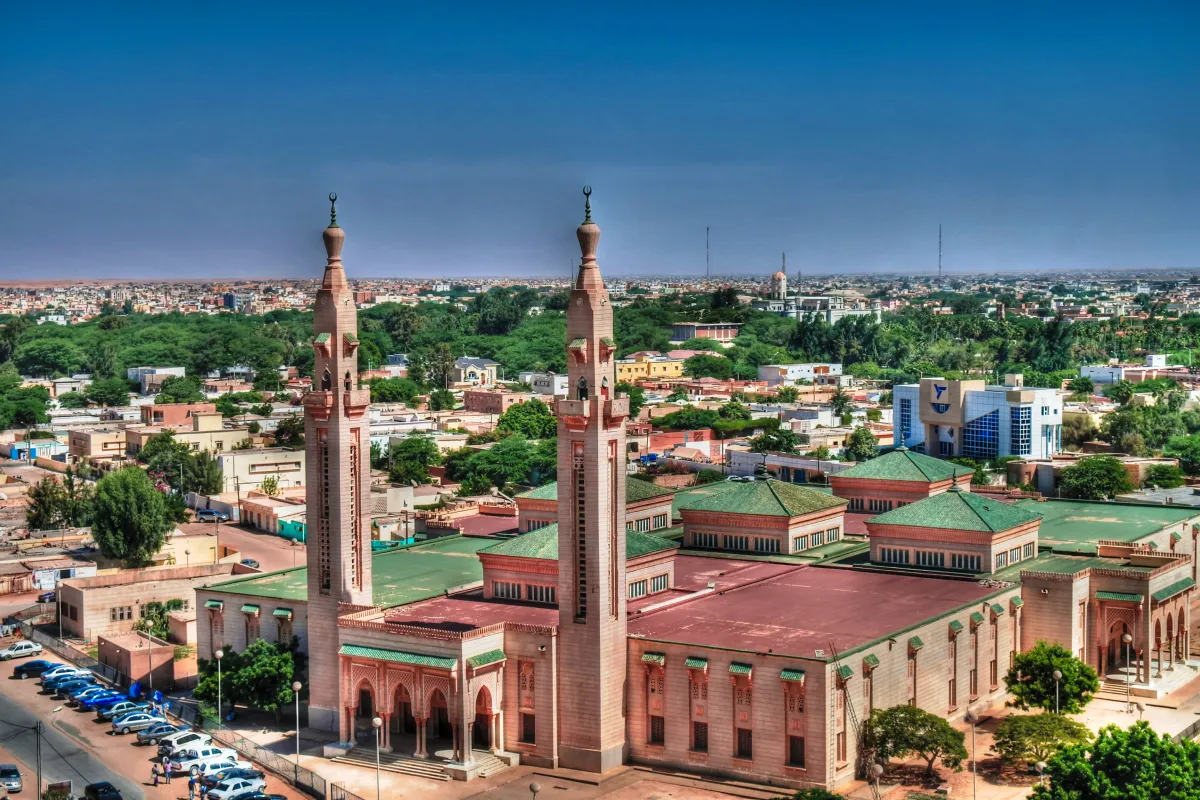
Countries
Employer of Record in Mauritania | Culture
We help you remain competitive for top talent and grow your global team quickly — no entity required

Mauritania Fast Facts
Download our guide to hiring in Mauritania.
Culture and Holidays in Mauritania
Languages
In corporate sectors like mining and energy, French is the primary language for communication, documentation, and client interactions, especially in multinational companies (MNCs). Meetings, presentations, and official emails are generally conducted in French, though employees may use Hassaniya Arabic informally.
In government offices and public sector organizations, Arabic and French are commonly used for internal communication and documentation. Mauritania recognizes Arabic as the official language, with French maintaining prominence in extractive industries.
The mining and fisheries sectors rely on local languages for daily operations, especially in labor-intensive industries. Extraction sites, processing plants, and fishing vessels primarily use Hassaniya, Pulaar, or Soninke, while management-level communication is in French.
In customer service, language use depends on clientele. Arabic is common for domestic support, while mining/energy firms hire speakers of English and Chinese to cater to international commodity buyers.
Workplace norms and professional etiquette
Mauritanian workplace culture combines tradition, respect for hierarchy, and Islamic principles with a strong sense of formality. Understanding these traits is fundamental for success in Mauritania.
Workplace hierarchy and authority
Organizations are structured and hierarchical; titles (Sidi, Sayyida, professional titles) are used formally in address.
Email and phone etiquette
In Mauritania, emails are formal, using correct titles and polite phrasing. In calls, polite greeting followed by a concise business overview is the norm; chasing without notice is frowned upon.
Meeting etiquette and punctuality
Punctuality is essential — arriving 10–15 minutes early is recommended. Meetings start with light small talk then straight into the agenda; delays are not tolerated.
Professional dress code
Formal business attire (conservative and modest) is standard. Social events like dinners are key for relationship-building — you’ll often see gatherings with tea or banquets in professional contexts.
National holidays
Employees in Mauritania are entitled to several national holidays.
- Jan. 1: New Year's Day
- Eid al-Fitr
- Eid al-Adha
- May 1: Labor Day
- May 25: Africa Day
- Islamic New Year
- Mawlid al-Nabi
- Nov. 28: Independence Day
Employees may also receive local or sector-specific holidays depending on their region or industry.
Employees who work on public holidays are entitled to compensatory time off or additional pay, as regulated by Mauritania’s labor law and collective agreements. Standard rates apply on make-up days unless stated otherwise in employment terms.
Disclaimer: The information provided is for informational purposes only and does not constitute legal or professional advice. Safeguard Global disclaims any liability arising from reliance on this information. Certain content may be sourced from third parties and remains their intellectual property; all other content is owned by Safeguard Global and protected by applicable intellectual property laws. You are encouraged to seek professional or legal advice to address any issues, questions or matters arising from the information contained herein.

Contact Us
Book a demo today
We’d love to learn more about your needs and show you how we can help. Submit the form and we’ll be in touch to schedule a personalized demonstration of our platform and services.
Schedule an appointment
Fill out the form to speak to a rep about how we can help your organization.



















